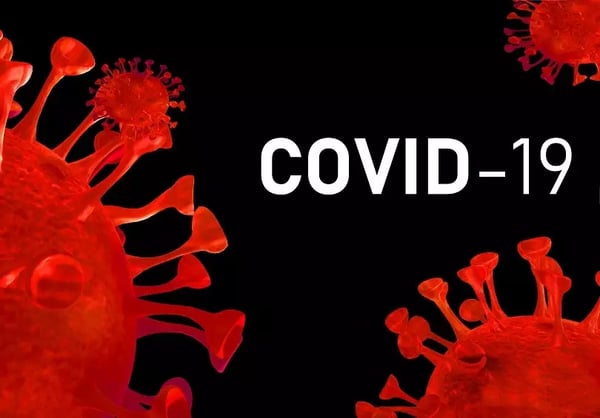In addition to the dreaded COVID-19 virus, there are plenty of words floating around that many of us are weary of hearing: “pandemic”, “mask”, “infection rate”, “social distancing”, etc. But no matter how tired we are of the coronavirus and all of its complications, we must stay vigilant about protecting ourselves and others while we wait for a vaccine. Surprisingly, controlling your allergy symptoms may play an important role here.
What do allergies and coronaviruses have in common?
Not a whole lot. Allergy symptoms are caused by exposure to harmless environmental substances, while coronavirus symptoms are the direct result of viral particles invading and destroying human cells. But the immune system reacts in a similar way to both (although COVID-19 may also cause additional symptoms), leading to:
-
- runny nose
- irritated nasal and respiratory passages
- sneezing
- wheezing
- coughing

People with allergies are everywhere – and multiple studies confirm that the number of allergic individuals is increasing year upon year in every Western country. But in these uncertain times, how do you know if your sniffle is caused by exposure to pollen or dust mites vs. the dreaded corona bug?
"In terms of respiratory symptomology, there are clearly partial similarities between COVID-19, seasonal influenza, bronchiolitis and untreated dust mite allergy" Professor Eddy Bodart
“In terms of respiratory symptomology, there are clearly partial similarities between COVID-19, seasonal influenza, bronchiolitis and untreated dust mite allergy,” explains Professor Eddy Bodart, pediatric pneumo-allergist.
“However, recent studies have shown that allergic asthma is not in itself a risk factor for contracting COVID-19 or developing a severe form of the disease.”
A dangerous symmetry
It is clear that doctors are strongly encouraging people who are aware of their allergies to actively treat their symptoms – but not just to ensure better health and well-being.

It’s not simply a question of determining whether mild cold symptoms are caused by allergies or the coronavirus to diagnose them. Respiratory viruses like COVID-19 are spread when viral particles emitted by an infected person enter the air – during a sneezing or coughing episode, for instance. Studies have shown that these airborne viral particles can travel surprisingly far, especially in enclosed and poorly ventilated spaces.
No, a person suffering from the effects of a dust mite allergy isn’t going to “spread” their allergy to other people by sneezing on them. But what if allergy sufferers are unknowingly infected with a mild – or asymptomatic – form of COVID-19, something that is suspected to be a very common occurrence?
That allergic sneezing fit can become something entirely different: a potential super-spreader event
That innocent-seeming allergic sneezing fit becomes something entirely different: a potential super-spreader event.
“Coughing fits, a runny nose and sniffing can probably favour the spread of COVID-19, especially in asymptomatic children, adolescents or young adults who are unaware that they are colonized by a potentially dangerous virus that they can transmit,” asserts Prof. Bodart.
“As allergists, it is essential that we treat our allergic patients as well as possible in order to control their respiratory symptoms. In the case of dust mite allergy, allergen avoidance remains the first line of treatment.”
Treat two problems with one solution
In addition to responsibly wearing a mask, maintaining a safe distance from others and washing your hands often to prevent COVID-19 infection, it’s important for allergy sufferers to take responsibility for their treatment. One infected but asymptomatic person can infect many more, and it’s even easier to spread the virus if you’re coughing and sneezing.
Avoid being an unconscious super spreader and keep the people around you safe! Take an active role in treating your allergy symptoms.
Do your part in the fight against COVID-19 by treating your dust mite allergy in a safe, effective and completely natural way – no medications needed. Learn more about how ExAller® works.






